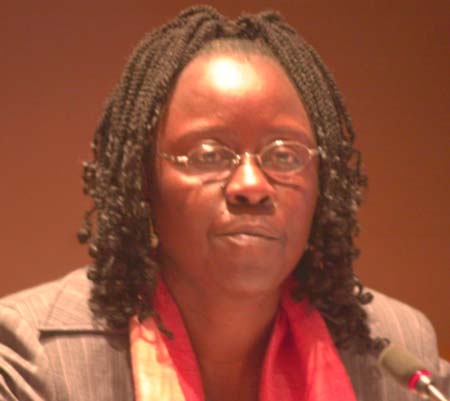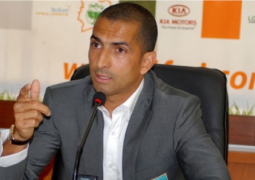
Ann Therese Ndong-Jatta was speaking yesterday during a side event on peace sensitisation training for young people, organised by her office as part of events marking the 10th year commemoration of the African Youth Charter (AYC) commonly known as Banjul+10.
Held at the Paradise Suites Hotel, the theme for the UNESCO youth forum is: ‘Youth, Peace and Security, Gender, Social Inclusion, Citizenship and Heritage’.
Banjul+10 is an opportunity to advance the agenda of youth empowerment and development in all member states by ensuring, as a mechanism, mutual accountability to the obligations of African Youth Charter and re-affirming commitments in the Decade of Youth 2009 –2018 and its Plan of Action.
It will also provide a high-level political forum for intergenerational discourse and advocacy, stakeholders’ interaction, agenda setting and celebration of African Youth Initiatives, and showcase the progress Africa youths are making across all fields of human endeavour surviving against all odds, leading young, innovation, creativity and public service.
The theme of the commemoration is: “10 Years Implementation of the African Youth Charter: Accelerating Youth Development in Africa”.
The purpose of the Banjul+10 AYC commemoration is to provide a common platform for member states to conduct a peer review of their investments to “prepare the future” for Africa’s youth.
As a “rights based” policy framework, it is critical to focus youth rights in all its facets, and as a guideline towards the achievement of the desired developmental outcomes for young people in Africa.
Mrs Ndong-Jatta said:“Yet, unfortunately, and in a rather paradoxical manner, it is the majority of these same young men and women that have been trapped in a seemingly endless cycle of intractable violence, both as active participants and as perpetual victims.”
“Peace is becoming a rare commodity, with more and more deadly conflicts breaking daily in different parts of the world,” she said.
According to her, Africa is certainly no exception to this new reality, and the youths, in particular, often find themselves at the centre of some of the most tumultuous events that have engulfed their countries, caught between victimhood and perpetrators.
“Inequality, marginalisation, and exclusion are widespread and increasing among those under 28, with little hope for the future,” she said.
She added that even as the growth trends in the majority of African countries continue to be positive, youth unemployment and poverty are increasing to alarming proportions.
“In an environment where whole generations have been born into, and socialised by the logic of ‘guns and boots’ instead of books and pens’ as is the case in many conflict and post-conflict countries in the region,’’ she said.
She said it would take time for Africa to transform the minds of its young generation from a culture of war and violence, to one that promotes tolerance, peaceful co-existence and non-violence among the different segments of society.
“It will take time for Africa to stamp it authority on education, youth employment policies that can address the challenges of sustainable development in the years ahead,” she added.
Maimuna Sidibeh, on behalf of the secretary general of the Gambia National Commission for UNESCO, said the side event was convened by UNESCO in partnership with the African Union, the UN country team and the African Artist for Peace Initiative.
She said the Gambia National Commission for UNESCO and the entire Gambian populace placed great interest on the training that would not only highlight the ideals of knowledge sharing, capacity building, critical thinking and reflections, on youth issues, in the interest of social transformations, but equally reinforce the capacities of youth stakeholders to address their challenges.
Ade Mamonyane Lekotje, the UN resident coordinator in The Gambia, said the two-day activity would be located into a border context of international development thinking of the day, and specifically recalled the critical juncture at which the world found itself.
Momodou
Lamin Ceesay, permanent secretary, Ministry of Youth and Sports, and Lawrence
Muli, of the UNESCO Pan African Youth Network on a Culture of Peace-PAYNCOP,
both echoed similar sentiments.
Read Other Articles In Article (Archive)
UK national donates to KabaKoto School
Mar 16, 2010, 9:52 AM
Price of sugar hikes again!
Jan 26, 2010, 2:18 PM


